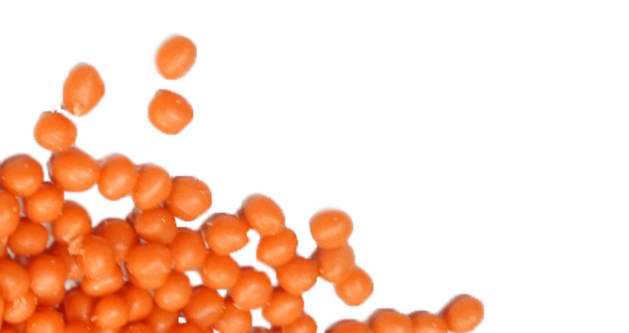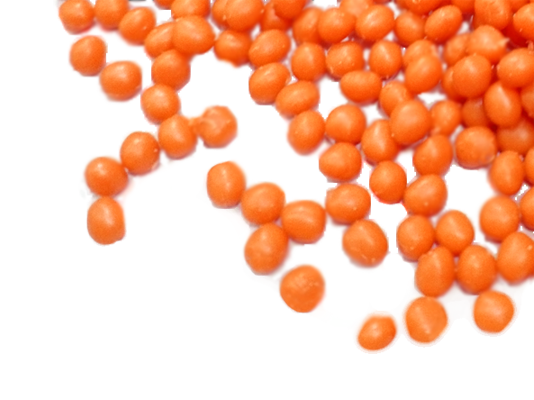Thermoplastic elastomer, often referred to as TPE, is an elastomeric material with a softer and more flexible texture than plastic. “TPE” encompasses a large range of concepts. TPE can be divided into several categories because of its different chemical compositions and combinations. We will only describe the following four categories (Please see below).
As for its characteristics, the thermoplastic elastomer (TPE) is similar to rubber, which is good for plastics processing. It is highly elastic, environmentally friendly, non-toxic and safe. It does not need to be vulcanized, and it has excellent coloring, weather resistance and other such properties. Its production process is simple and cost down, and is recyclable. It can be molded with PP, PE, PC, PS, ABS or PA (Nylon) through integration or separately.
Different composition
Thermoplastic rubber elastomer (is known as TPR for short) may also be referred to as simply elastomer, thermoplastic rubber, etc. It is a material with both rubber and plastic characteristics.
In Asia and the domestic area commonly referred thermoplastic rubber as TPR and in other countries, they referred it as TPS (or TPEs, Thermoplastic Elastomers). We will call it as TPS in this section, and also, it is a blending mixture of styrene elastomers (SBS /SEBS /SIS /SEPS).
The particular molecular structure of the elastomer gives the material thermoplastic properties at high temperatures. It is vulcanized-free, is made with a simple process, and can be easily modified the TPS/TPR material properties by additives. Furthermore, with the use of compounding techniques, it can be produced to meet customer requirements. The physical manifestations of this material are also superior. It has a large range of applications; such as high-grade soles/insoles, adhesives, asphalt road construction and the plastic modification on processing.
Since the TPS/TPR material can be used in the direct injection process with a shorter working time and higher efficiency, these reusable materials are suitable for secondary processing and recycling. These features can reduce the production costs and avoid the material waste. These materials are also environmentally friendly since during its production process, it will not produce any harmful contamination or odor; in addition, it is easy to manufacture with stable qualities. This material will be the perfect replacement for other high-polluting materials like vulcanized rubber and PVC materials.
On the other hand, the thermoplastic elastomers(TPE)/thermoplastic rubbers(TPS/TPR) have weaker heat resistance than traditional rubber. Therefore, they will be easily soften or melt at higher temperatures. When the processing temperature increases, its physical properties will relatively decrease. The processing of this material has certain temperature limitations. However, with the good physical properties and electrical insulating properties, it is still the popular and preferred material to be used in wide range of applications.
Good physical properties:
( 1 ) Pleasing appearance and feel, easy to add color, good stability.
( 2 ) The hardness range : SHORE 0A ~ SHORE 70D.
( 3 ) Good insulation and weather resistant.
Good chemical resistance:
( 1 ) Non-toxic, non-irritating, non-polluting in production processes, no harm to the environment or humans.
( 2 ) Resistant to common chemicals.
Mechanical stability:
( 1 ) It can be applied to injection molding machines, extrusion molding, blowing and compression molding machines.
( 2 ) Simple production process, short processing time, high efficiency.
( 3 ) High tensile strength resistance and low compression deformed.
( 4 ) Good combined with the general plastic blending to be an extraordinary alloy material.
Temperature characteristics:
( 1 ) Low temperature resistance, lower temperature to -60° C.
( 2 ) Deforming temperature at about 70°C~80°C.
Environmentally friendly materials that comply with the eight heavy metals specifications of the U.S.
TPV material is classified as polyolefin thermoplastic elastomer family, it is a dynamically vulcanized EPDM + PP, also known as thermoplastic vulcanization and are often simply referred to as TPV. Nowadays, PVC material has largely been replaced by TPV. This material has heat resistance and low compression deforming properties, which is similar to vulcanized rubber and its heat temperature can reach 135 °C. The following features:
1. Acid and alkali resistant.
2. Oil resistant.
3. Anti-aging properties.
4. Good weather resistance.
5. Cold & heat resistant. (The range: -60 ° C ~ 135 ° C)
6. Excellent tensile strength and resilience.
TPV hardness range: SHORE 25 A ~ SHORE 70 D
This material does not need to be vulcanized in the process, it is easy to process with good performance and coloring, and it has natural rubber advantages of elasticity and
durability, and can be combined with PP, PE, EV for injection molding, blowing molding and extrusion molding machine in processing. This material is recyclable and
environmentally friendly.
Environmentally friendly materials that comply with the eight heavy metals specifications of the U.S.
TPU (Thermoplastic Polyurethane) is an environmentally friendly, non-toxic elastic polymer with no plasticizer. Its characteristics are between rubber and plastic, and it can replace PVC material. The following features:
1. Good tear strength resistance and elongation.
2. Withstanding low temperatures and flex.
3. Particular in impact resistant and abrasion resistant.
4. Grease resistant.
5. Aging resistant.
6. Weather resistant.
7. Highly waterproof.
8. Excellent mechanical properties.
9. Maintaining good at physical properties at -35 °C and high temperature resistance up to 120 °C.
10. Antioxidant activity.
However, its heat resistance and compression is not durable, and its end product is easy to discolor ( or called yellowing) when exposed under sunlight. In addition, the processing cost is always high and the technic required is more precisely as well.
TPU hardness range: SHORE 40 A ~ SHORE 85 D
The grades of TPU particles (resin) can be simply categorized into: injection grade, extrusion grade, and blowing grade. Some TPU materials are molded by particles and some are
made of varying thicknesses films for different product applications. TPU can be recycled, coloring, and has high processing efficiency.
TPEE (Thermoplastic Polyether Ester Elastomer, is known as TPEE for short) material has both the advantages of elastomeric rubber and the strength of engineering plastic, which it contains a polyester hard segment and polyether soft segment copolymer. The hard segment and soft segment together give TPEE its hardness and flexibility, the hardness range is in SHORE 30D ~ SHORE 80D. The harder the TPEE is, the better its heat resistance is; the lower the temperature, the better its cold resistance is. Its operating temperature ranges from -70 °C to 200 °C. This material has superior features, but cost highly.
TPU (Thermoplastic Polyurethane) is an environmentally friendly, non-toxic elastic polymer with no plasticizer. Its characteristics are between rubber and plastic, and it can replace PVC material. The following features:
TPEE has the following characteristics:
1. Good tensile strength.
2. Good resilience.
3. Tough, wear resistant.
4. Oil/chemical resistant.
5. Highest heat resistance.
6. High impact resistance.
7. Good mechanical properties.
Applications:
All kinds of automotive parts, hoses/hard tubes, all kinds of gears, bearings, sealing materials, pipes, cables, communication cables, compression springs, sporting films, golf ball
surfaces, etc.


Excellent physical properties, with the following features:
Weather resistant
Aging resistant
Softness
Combines well with colors
Scratch resistant
Dust resistant
Good mechanical properties
Chemical resistant
Good ductility
Non-toxic
High tensile strength
High temperature resistance